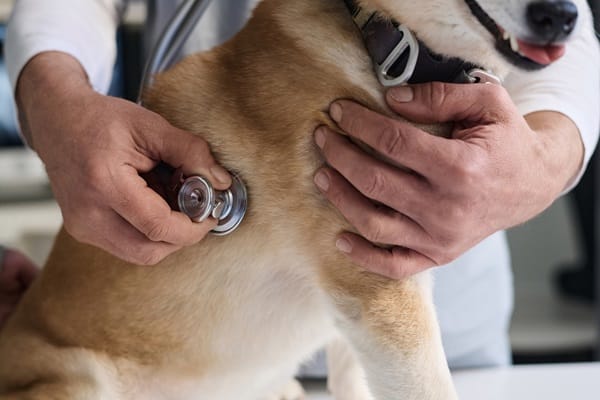Omega-3 fatty acids are essential nutrients that play a crucial role in the health and well-being of pets, just as they do in humans. Found in a variety of both animal and plant sources, these fatty acids are vital for maintaining a shiny coat, healthy skin, proper brain function, and overall good health. This post explores the benefits of omega-3s for pets, discusses natural sources, and provides practical advice on how to safely incorporate them into your pet’s diet. Whether you’re a seasoned pet owner or new to pet care, understanding the role of omega-3s can significantly enhance your pet’s quality of life.
Contents
What Are Omega-3 Fatty Acids?

Omega-3 fatty acids are indispensable fats that pets must derive from their diet, as their bodies cannot synthesize them independently. These fats are crucial for maintaining healthy cell membranes and play a significant role in modulating inflammation throughout the body. For pets, omega-3s are instrumental in various biological processes, including supporting cardiovascular health, enhancing neurological development, and boosting immune function. Among the types of omega-3s, ALA (alpha-linolenic acid), EPA (eicosapentaenoic acid), and DHA (docosahexaenoic acid) are the most significant.
EPA and DHA are primarily found in marine sources and are directly utilized by the body, making them highly beneficial for pets. These fatty acids are known for their potent anti-inflammatory properties, which are critical in managing chronic conditions such as arthritis and reducing allergic reactions. On the other hand, ALA, found in plant sources like flaxseeds and chia seeds, needs to be converted into EPA and DHA by the body. This conversion process is not very efficient in pets, which suggests that direct sources of EPA and DHA are preferable for optimal health benefits.
Sources of Omega-3s for Pets

The most bioavailable forms of omega-3 for pets come from marine sources such as fish oil, krill oil, and algae, which are rich in EPA and DHA. These sources provide direct forms of omega-3 fatty acids that pets can easily absorb and utilize, making them excellent choices for dietary supplements. Fish oil, in particular, is widely used due to its availability and high concentration of omega-3 fatty acids. Pet owners can easily add fish oil to their pet’s diet by incorporating it into their regular meals, ensuring that their pets receive these crucial nutrients consistently.
While marine sources are highly effective, plant-based sources like flaxseed, hemp oil, and chia seeds are also valuable due to their ALA content. Although ALA must be converted into EPA and DHA to be fully beneficial, these plant-based sources can still contribute to the overall dietary intake of omega-3s. For pet owners who prefer vegetarian or vegan options, these sources are particularly appealing. However, it’s essential to balance these with animal-based sources or check with a veterinarian to ensure that pets receive the right amount of bioactive EPA and DHA.
Benefits for Pet’s Skin and Coat

Omega-3 fatty acids are renowned for their role in improving the health and appearance of pets’ skin and coat. Regular supplementation can significantly reduce dryness and flakiness while enhancing the shine and softness of the coat. These benefits are largely due to omega-3’s ability to nourish the skin and hair follicles, leading to a healthier, more vibrant coat. Additionally, the anti-inflammatory properties of these fatty acids help reduce itching and irritation associated with skin allergies and infections.
Moreover, omega-3s play a crucial role in promoting faster healing of skin wounds and reducing the severity of infections. For pets with chronic skin conditions such as dermatitis, omega-3 supplements can provide much-needed relief and contribute to long-term skin health. By integrating omega-3 rich foods or supplements into their diet, pet owners can help alleviate uncomfortable skin issues and improve their pets’ quality of life. This not only helps the pets feel better but also reduces the stress and cost associated with frequent veterinary visits for skin problems.
Omega-3s and Joint Health

Omega-3 fatty acids also have a profound impact on the joint health of pets. Their powerful anti-inflammatory effects can help reduce the pain and stiffness associated with joint conditions like arthritis, significantly improving mobility and quality of life for affected pets. Regular omega-3 supplementation can decrease the inflammation that exacerbates joint pain, thereby offering a natural and effective way to manage these conditions.
In addition to pain relief, omega-3s help to slow the progression of degenerative joint diseases. By reducing the breakdown of cartilage and promoting healthier joint function, these fatty acids can extend the active years of pets, especially those in their senior stages. Studies have shown that pets receiving omega-3 supplements tend to have fewer joint-related issues and maintain better overall activity levels. Pet owners looking to support their aging or physically active pets can consider omega-3 supplements as a critical component of their pet’s health regimen.
The Impact on Heart Health

Omega-3 fatty acids contribute significantly to the cardiovascular health of pets. These nutrients help to lower blood pressure, reduce triglyceride levels, and improve overall heart function. By incorporating omega-3s into a pet’s diet, owners can help mitigate the risk of heart disease and promote a longer, healthier life for their pets. The anti-inflammatory properties of omega-3s also aid in reducing vascular inflammation, which is crucial for maintaining heart health and preventing cardiovascular issues.
Studies have documented the benefits of omega-3 fatty acids in reducing the incidence of arrhythmias—irregular heartbeats that can lead to more serious conditions. Furthermore, including EPA and DHA in the diet supports the elasticity of blood vessels, enhancing blood flow and cardiac health. This aspect of omega-3 supplementation is especially important for aging pets, who are naturally more susceptible to heart problems. Thus, omega-3s not only support physical health but also contribute to the longevity and well-being of pets.
Omega-3s and Brain Function in Pets

The role of omega-3 fatty acids, particularly DHA, is critical in the development and maintenance of brain function in pets. DHA is a major structural component of the brain and is essential for cognitive development in young animals and cognitive performance in adult pets. Supplementing a pet’s diet with DHA can aid in improving memory, learning, and problem-solving abilities. For puppies and kittens, omega-3s are vital for proper brain development and can set the foundation for their learning and behavior patterns throughout life.
In older pets, omega-3 fatty acids help to maintain brain health and mitigate cognitive decline. Regular intake of omega-3s has been shown to improve the cognitive functions of aging pets, helping them maintain better mental acuity and quality of life. The anti-inflammatory effects of omega-3s also play a role in protecting the brain from oxidative stress and inflammation, which are factors in cognitive degeneration. Thus, omega-3 supplements are beneficial at all stages of a pet’s life, supporting brain health from youth through old age.
Immune System Boost from Omega-3s

Omega-3 fatty acids play a pivotal role in boosting the immune system of pets. These nutrients help regulate the body’s immune responses, reducing the likelihood of autoimmune diseases and enhancing the ability to fight off infections. By moderating inflammation, omega-3s can prevent the immune system from overreacting to threats, which is especially important in managing allergic and inflammatory conditions. This regulation helps maintain a balanced immune response, which is critical for overall health and disease prevention.
Furthermore, omega-3s contribute to the production of compounds known as resolvins and protectins, which are involved in resolving inflammation and protecting the body from infections. These compounds are vital for reducing chronic inflammation and supporting the body’s natural healing processes. Supplementing a pet’s diet with omega-3 fatty acids can thus be seen as a preventive measure that promotes long-term health and reduces the frequency and severity of health issues, helping pets lead more comfortable and robust lives.
Dosage and Safety Concerns

When considering omega-3 supplements for pets, it’s crucial to understand the appropriate dosages and potential safety concerns. The right amount of omega-3s varies based on the animal’s size, age, and overall health condition. Pet owners should consult with a veterinarian to determine the most effective and safe dosage tailored to their pet’s specific needs. Over-supplementation can lead to negative effects such as diarrhea or blood clotting disorders, so proper guidance is essential.
It’s also important to consider the source and quality of omega-3 supplements. Products should be certified for purity and free from harmful levels of contaminants like mercury, which is particularly a concern with fish oil. Additionally, owners should monitor their pets for any adverse reactions when starting a new supplement and adjust dosages as recommended by their vet. By adhering to these guidelines, pet owners can safely incorporate omega-3 fatty acids into their pets’ diets, ensuring they reap all the health benefits without any unwanted side effects.
Unlock the Benefits of Omega-3s for Your Pet
Omega-3 fatty acids offer an array of health benefits that can significantly enhance your pet’s quality of life. As you’ve explored their impacts on everything from heart health to cognitive function, it’s clear that these essential nutrients are vital for a thriving pet. Consultation with a veterinarian can help you integrate these supplements effectively and safely into your pet’s diet. Embrace the power of omega-3s and watch your beloved companion enjoy a healthier, more vibrant life.v


